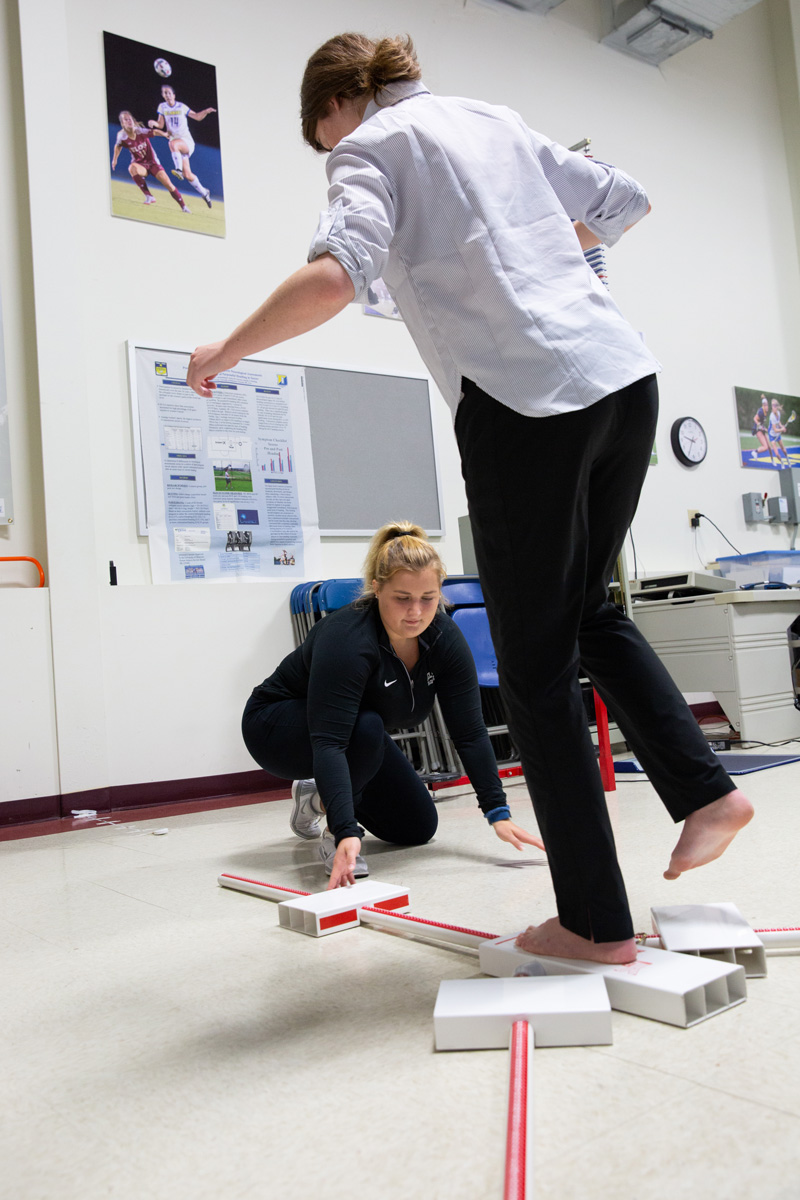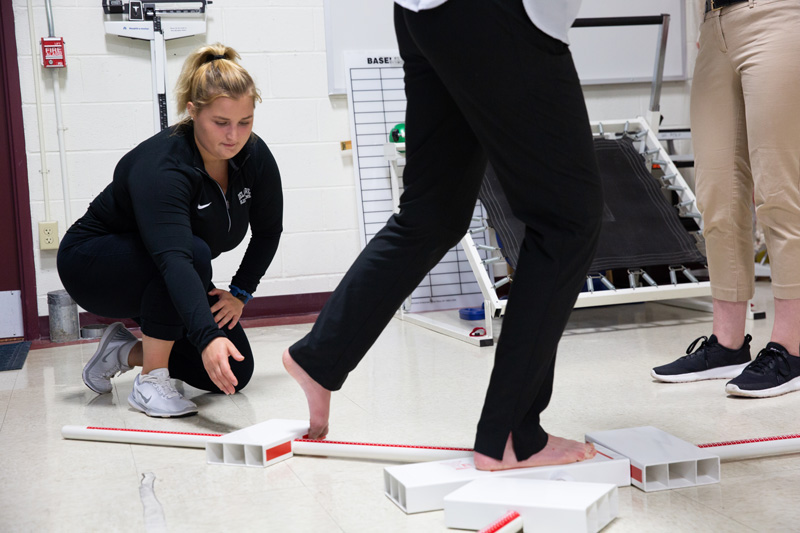

Connecting with research
Photos by Ashley Barnas August 28, 2018
Associate in Arts students benefit from summer program
Students find many benefits in the University of Delaware’s Associate in Arts Program (AAP), from affordability to small class sizes to an easy transition from the two-year program on campuses in each county to a bachelor’s degree at UD’s main campus in Newark.
This summer, five new AAP graduates from the Dover campus also benefited from the opportunity to conduct undergraduate research.
Funded by the Delaware Idea Network of Biomedical Research Excellence (INBRE) and the colleges of Arts and Sciences and of Health Sciences, each student worked in a UD lab with a faculty mentor, developing research skills and — as a bonus — gaining familiarity with the Newark campus.
“Students taking part in undergraduate research get to see what real research involves, and they get to know a professor, maybe even one who will inspire them to pursue STEM as a career,” said Melinda Duncan.
Duncan is a professor of biological sciences at UD and director of education and professional development for Delaware INBRE, a federally funded collaborative network that seeks to build the state’s biomedical research infrastructure. As part of that mission, the program supports a number of undergraduates who assist in research projects at UD and other INBRE partner institutions in Delaware.

To Duncan, research opportunities are an important way to address a national STEM-retention problem.
Many students graduate from high school with an interest in science, she said, but too often, they decide on a different major after finding college-level math and science courses more challenging than they expected. But being part of an actual research team can motivate students and encourage them to stick with the STEM classes that will help them in the lab, Duncan said.
“If you can see why you need to learn something in class, it’s easier to work through the hard parts of learning a subject,” she said. “Early engagement in research can really help with this.”
This may be especially important for AAP students, whose courses are taught by UD teaching faculty, not usually by researchers, and who therefore may not be as aware of undergraduate research opportunities.
That’s why Delaware INBRE plans to continue reaching out to the AAP campuses to help talented students “make the connection with research,” Duncan said.
Thomas Giardina, assistant professor of biological sciences in the Dover AAP, recommended several students for the summer program.
“The INBRE Summer Scholars program is an awesome opportunity for all UD students, but it offers unique advantages to our students in the Associate in Arts Program,” he said.
“These students are transitioning to the main campus at the start of their junior year, which means they need to hit the ground running if they want to participate in undergraduate research. INBRE serves as a fantastic launchpad.”
Sarah Trembanis, associate professor of history and faculty coordinator for the AAP in Dover, said the students who took part in the INBRE program this summer did well and were all hoping to continue to conduct research.
“It has been an incredible success for these students,” she said.
David Satran, director of the UD Associate in Arts Program, sees benefits to undergraduate research that extend beyond the students themselves.
“My view is that research opportunities not only support AAP student development by engaging their imagination and broadening their perspectives, interests and career options, they also work to connect the research and Delaware communities,” Satran said.
“The students don’t leave their research in the lab. They bring it back to their families and communities.”
The AAP students supported by INBRE this summer worked on a variety of projects in several different disciplines. They helped with research on brain cancer, the effects of concussions, the development of children who have experienced adversity, how children with autism acquire language and the mechanics of tendon use and damage.
Alissa Strouse, who conducted research on concussions with Thomas Kaminski in the Department of Kinesiology and Applied Physiology, called the experience “amazing” and said she was made to feel part of the lab team family. Doing research, she said, taught her the value of patience because results aren’t immediate.
“For all the things we know about the human body, there’s a million other things we don’t know,” Strouse said. “I’m interested in pursuing a career in research so that I can … provide at least one of those answers.”
For Krystal Mendez, the summer showed her some of the variety of research opportunities available. Her primary project involved language impairment in children, but she was also able to assist with another project that used technology such as UD’s functional magnetic resonance imaging (fMRI) instrument.
She said she’s become an advocate for encouraging others, especially AAP students, to participate in undergraduate research.
“It gives students the chance to see how research works and if they’re interested in going to graduate school,” Mendez said. “If they are, they can leave with skills necessary for graduate school and with connections that will help them to advance in their careers.
“Being an Associate in Arts alumni made this even more significant to me.”
Contact Us
Have a UDaily story idea?
Contact us at ocm@udel.edu
Members of the press
Contact us at 302-831-NEWS or visit the Media Relations website


